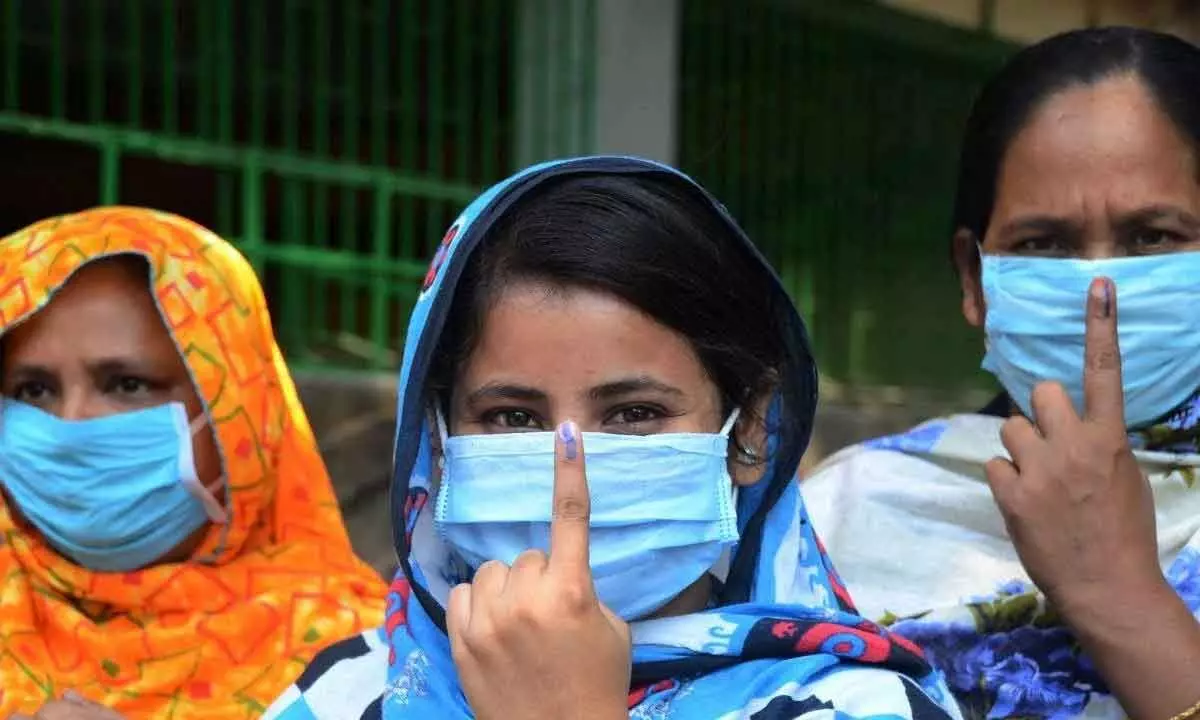Politicians have a crucial role to play in making India a high-income nation
image for illustrative purpose

The World Bank’s latest report on extreme poverty in India has underlined the salutary effect of economic reforms. “Between 2000 and 2019, India enjoyed rapid economic growth averaging 6.6 per cent per annum. GDP per capita more than doubled and extreme poverty (at $2.15 2017 PPP) fell from 39.9 per cent in 2004 to 12.7 per cent in 2019,” the report said. Despite GDP decline of 5.8 per cent in 2020-21 due to Covid-19, the economy rebounded swiftly by 9.1 per cent in 2021-22, returning to its pre-pandemic level. “Extreme poverty declined by 3.4 percentage points in FY22/23 relative to FY20/21, to 11.3 per cent.”
It is interesting to note that the Bharatiya Janata Party and the Congress were at the helm in almost equal measure during the period covered by the World Bank report. This means that both parties and their supporters will love to embrace the report.
Also, as mentioned earlier, both parties have generally promoted reforms, even though many of their decisions can never be called reformist in nature. The Congress-led United Progressive Alliance government, for instance, stalled privatization, introduced retrospective taxation, and promoted several statist measures. The BJP-led National Democratic Alliance, on its part, has wasted lakhs of crores on revival packages for BSNL. Besides, excessive use of agencies like the Enforcement Directorate and the Central Bureau of Investigation has occasioned a reign of fear which has become a dampener for prospective investors.
The challenges are many and varied: 16.4 per cent of the population faces deprivations that classify them as multidimensionally poor; one in three Indians is malnourished; not enough jobs are getting generated; manufacturing remains sluggish; the prospects of a K-shaped growth looms large. Yet, despite several failings, all governments in this century have managed to keep the India story vibrant and interesting.
For India to achieve the national goal of becoming a high-income country by 2047, around 8 per cent average annual growth is a sine qua non. The World Bank’s prescription for our country to achieve this is on expected lines: “This requires more ambitious structural reforms to enhance the quality of education, generate more and better jobs (in terms of remuneration, stability, and labour conditions), increase the economic participation of women and youth, improve infrastructure, and strengthen the business environment.”
Apart from this, there are a few things that our politicians should do religiously. First, they must eschew mindless populism and freebies. Unfortunately, the opposite is happening. Freebies are gaining political currency with more and more parties, including the grand old party, falling prey to the meretricious charms of freebies. While the BJP opposes freebies, it also indulges in populism. Farm loan waivers are one example of the ruling party’s many a rendezvous with populism.
Secondly, politicians should ensure predictability in economic policy. Nothing disgusts businesspersons like shock announcements, for such incidents wreak havoc with this plans, jeopardize their investments, and cause considerable anxiety and stress. No one wants to spend money to buy anxiety and stress. And, finally, politicians must augment their interaction with business, especially MSMEs, at all levels - from the Central to the district and even block level. This will not just enthuse entrepreneurs but will also keep the local officials on their toes. Politicians have to strive to make the country rich; mere speeches and slogans won’t do.

